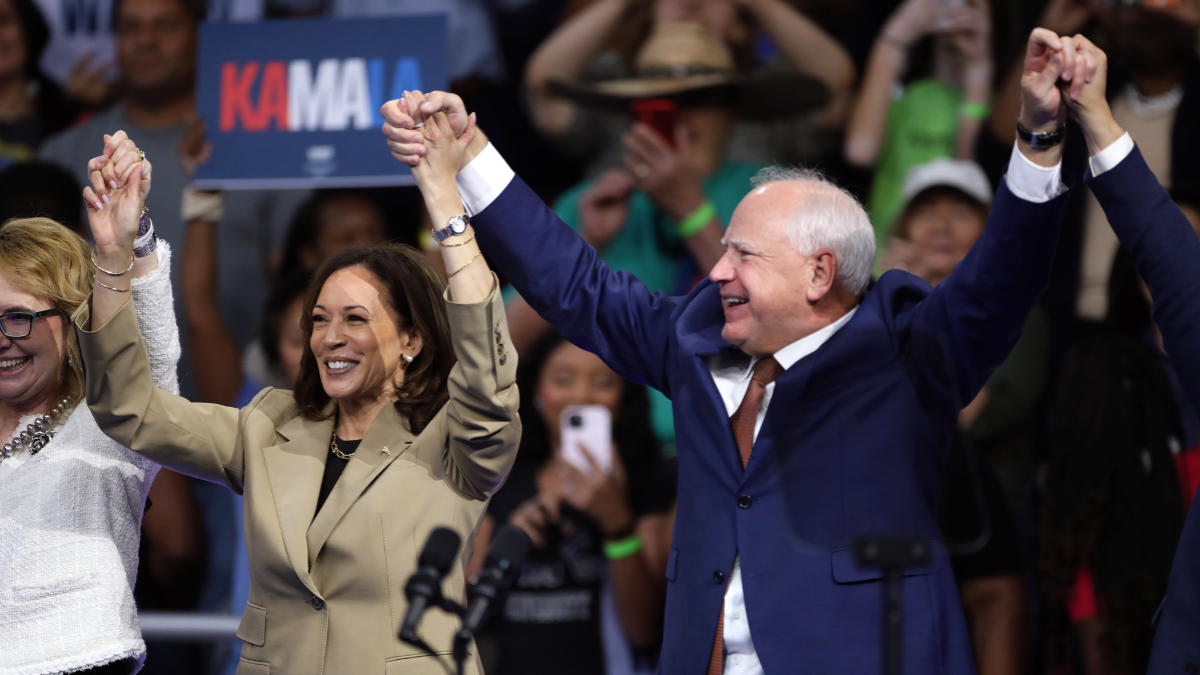On his blockbuster interview with Joe Rogan last Friday, Donald Trump discussed reverting the United States’ top revenue source to taxes on imports — tariffs — instead of the income tax.
Trump went into American political history to explain why tariffs are a better source of government revenue than a system such as an income tax on citizens. The American Founders agreed.
They debated and soundly rejected a federal income tax system, opting instead in 1789 to institute an ad valorem tariff on “all articles of foreign manufacture” as the sole mechanism for funding the federal government. The Tariff Revenue Act of 1789 was the very first law on the books of the very first Congress. That’s why a constitutional amendment was required in 1913 just to make an income tax system legal in this country.
The income tax system has fueled a monstrous expansion of federal power and created a military-industrial complex that is insatiable in its quest for control of global resources to keep itself in power. This complex seeks to destroy the last vestiges of our Founding system in favor of a globalist “New World Order” and will destroy or even kill anyone who stands in its way — including Trump.
Tariffs Mind America’s Business
Our founders, by contrast, sought not an empire, but a peaceful commercial republic. Our national purpose was to avoid at all costs foreign entanglements that made us vulnerable to the whims of foreign powers.
The tariff revenue system, they reasoned, achieved that. It also met their two major domestic objectives: 1) it was sufficient to obtain the annual revenue for a very limited but fully functional federal government, and 2) it is by far the least oppressive option for Americans.
Having freshly thrown off the chains of monarchy, the Founders were in no mood to exchange America’s hard-fought freedom for another form of tyranny. Toward this end, “Regulation of Commerce with Foreign Powers” was so important, it’s listed as one of the very few enumerated powers of the federal government, right in Article 1, Section 8, of the Constitution.
Regulating trade was seen as essential to protect our fragile wage and price structure from foreign manipulation or attack, and to render Americans independent as a free people. Contrast that with how dependent we are on communist China for most of our essential products today!
We would thus do well to revisit this issue from first principles.
No, Adam Smith Isn’t Categorically Against Tariffs
The challenge is that modern economists since the mid-1800s exchanged the nationalist view of trade of our Founders for the internationalist view of trade held alike among today’s socialists and capitalists. This is why both establishment political parties today agree, if on nothing else, on “free/fair trade” as the backbone of their “rules-based order.”
The Adam Smith, or free-market, view of trade is only superficially opposed to tariffs as our Founders employed them, because up until Smith published “Wealth of Nations,” no nation had yet done precisely what America did. Smith’s criticisms of tariffs deployed tactically as political kickbacks or weapons of trade war were 100 percent on point and are still valid today.
But, as a British subject to a sovereign monarch, Smith really had no imagination for using tariffs as a principled alternative to the income tax, and never considered the issue in that light, as our Founders did. He did, however, ridicule the idea that trade in and of itself somehow created wealth. In his view, people disposed to legislate special encouragements in support of the carrying trade were “mistaking the symptom for the cause” of great wealth.
More to the point, Smith’s 300 pages describing the role of capital in national wealth-building, culminating with his famous “invisible hand” passage, pointed to another, more fundamental and principled way to employ tariffs for the public good. Smith’s hand is very visible in Alexander Hamilton’s famous “Report on Manufactures.” Smith shapes Hamilton’s recommended trade and industrial policies for our fledgling republic as the nation’s first treasurer.
Hamilton sought to make the invisible hand explicit to encourage large-scale capital accumulation in America’s industrial infrastructure. This is what creates wealth in Smithian economics, not mere “trade” for trade’s sake.
Smith attributes the wealth of successful nations to their innate preference for domestic over foreign industry, which he attributed to the “invisible hand” of Providence or cultural influence. It is well past time to reconsider our contemporary frame of reference with respect to America’s real purpose in this world. It’s not merely to be “exceptional” per se, but to be as free and independent as possible.
Our system of taxation is fundamental to achieving that national purpose. We the People should take this moment to consider how we might be “unburdened by what has been” since 1913, and live like a free people, once again.









